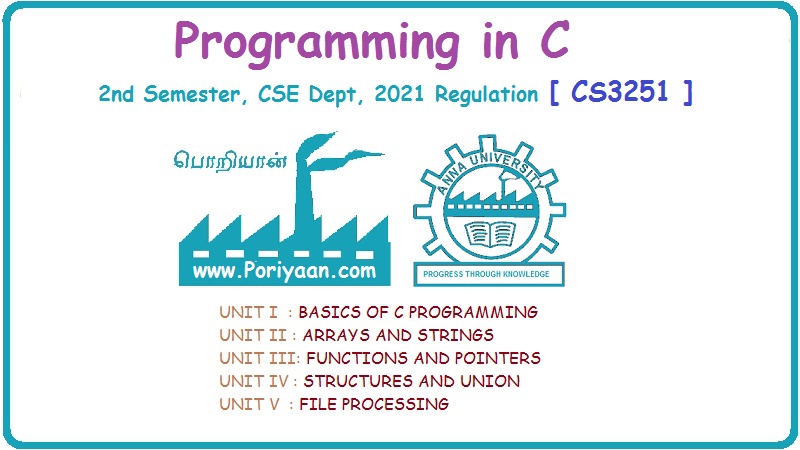Programming in C: Unit I (b): Introduction to C
Using Comments
C Program
Many a time the meaning or the purpose of the program code is not clear to the reader. Therefore, it is a good programming practice to place some comments in the code to help the reader understand the code clearly.
USING
COMMENTS
Many
a time the meaning or the purpose of the program code is not clear to the
reader. Therefore, it is a good programming practice to place some comments in
the code to help the reader understand the code clearly. Comments are just a
way of explaining what a program does. It is merely an internal program
documentation. The compiler ignores the comments when forming the object file.
This means that the comments are non-executable statements. C supports two
types of comments.

• // is used to comment a single statement. This is known as a line comment. A line comment can be
placed anywhere on the line and it does not require to be specifically ended as
the end of the line automatically ends
the line.
Programming Tip: Not putting the */
after the termination of the block comment is a compiler error.
• /* is used to comment multiple statements. A
/* is ended with */ and all statements that lie within these characters are
commented. This type of comment is known as block
comment.
Note
that commented statements are not executed by the compiler. Rather, they are
ignored by the compiler as they are simply added in the program to make the
code uple who understandable by the programmer to other people who read it. It
is a good habit to always put a comment at the top of a program that tells you
what the program does. This will help in defining the usage of the program the
moment you open it.
Ppppppppppppppppppppppppp
Commented
statements can be used anywhere in the program. You can also use comments in
between your code to explain a piece of code that is a bit complicated. The
code given below shows the way in which we can make use of comments in Our
first program.
/* Author: Reema Thareja
Description: To print 'Welcome to
the world of C' on the screen */
#include <stdio.h>
int main()
{
printf("\n Welcome to the
world of C ");
// prints message
return 0; // returns a value 0 to
the operating system
}
Output
Welcome to the world of C
Programming in C: Unit I (b): Introduction to C : Tag: : C Program - Using Comments
Related Topics
Related Subjects
Programming in C
CS3251 2nd Semester CSE Dept 2021 | Regulation | 2nd Semester CSE Dept 2021 Regulation
